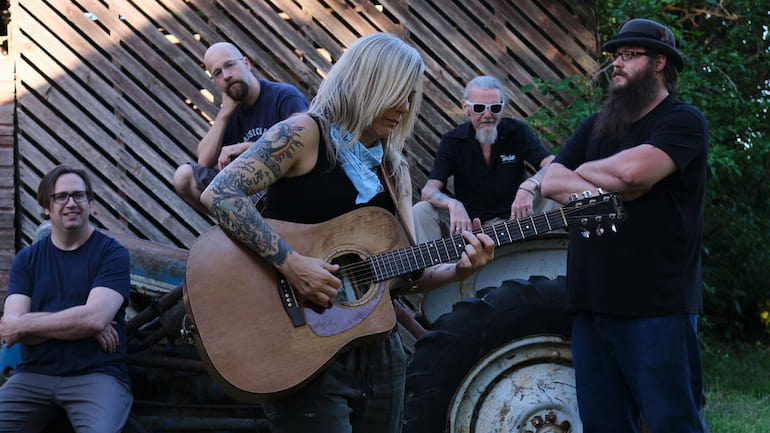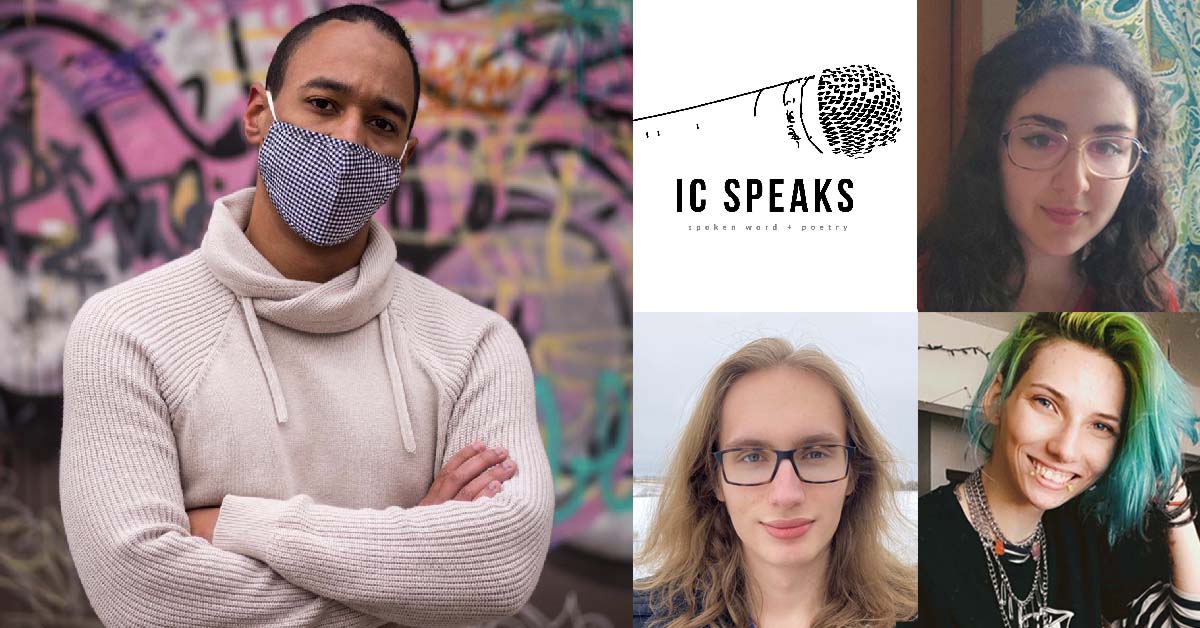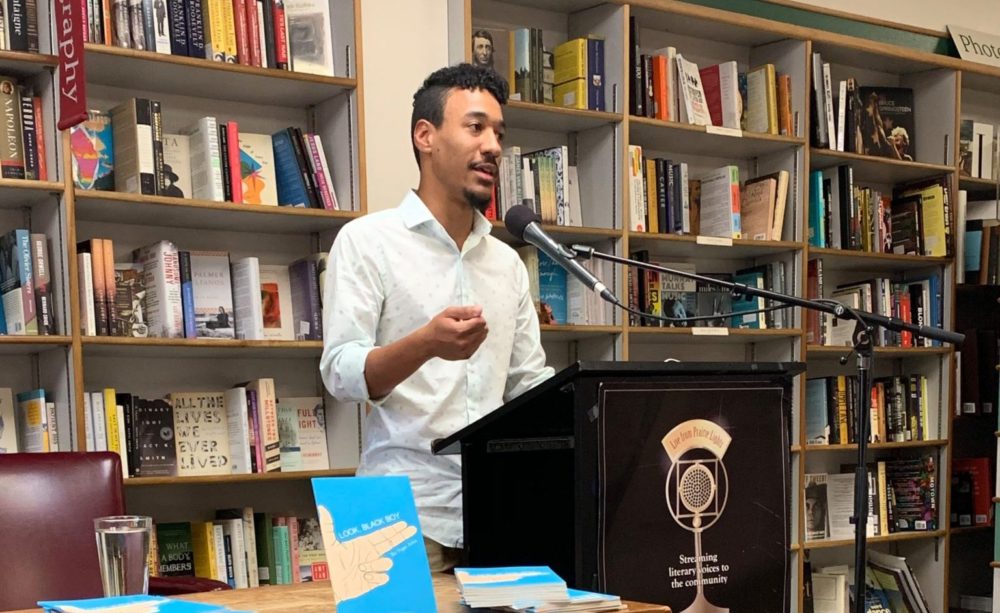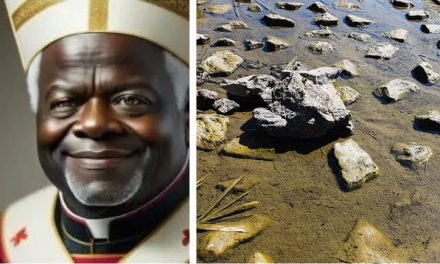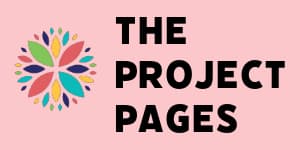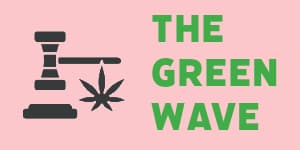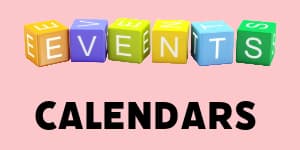I recently came up with the perfect idea for a t-shirt. “I’ll show you my ‘ism if you show me yours.” I think it would sell like bacon at a rodeo breakfast!
Enough horsing around though, seriously.
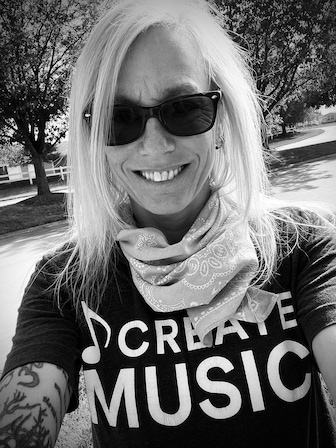
Nikki Lunden Trotter, lead singer and founder of the Natural Habits Band.
If you’re not an alcoholic, it is so hard to understand the pain, shame, guilt and fear that an alcoholic goes through. It’s especially hard for you if you’re the supportive one always following behind and cleaning up the wreckage of our disease, desperately trying to help, apologizing on our behalf for our mistakes, getting so angry you can’t stand us, giving ultimatums …. and all kinds of stuff to stop us from self-destructing.
Getting help took more than a decade
I can’t count how many times I tried to quit drinking and using since 1997, or how many times my friends had to “Nikki-sit” during my blackouts. The things I would do that were so embarrassing … or worse, waking up knowing something happened, but not knowing what.
One night, a friend of mine had to drive around slowly while holding on to the back of my jeans so I wouldn’t fall out of the car window on the way home. Yes, Nikki unleashed and tethered at the same time.
Another time, I woke up with blue pill snot all over my runny nose because I had been snorting adderall (and drinking) the night before. I had no idea how I got the adderall, or who I was with.
I knew I needed to get clean and sober well before my mid 30s. I didn’t get here until I turned 40. Many mornings, I’d wake up and tell myself, “never again” and “I hate you.” A few hours later, I’d be cracking a beer because it was the only way to feel “normal.”
The only cure for the shakes was more alcohol. The only cure from the pain of coming down was more drugs.
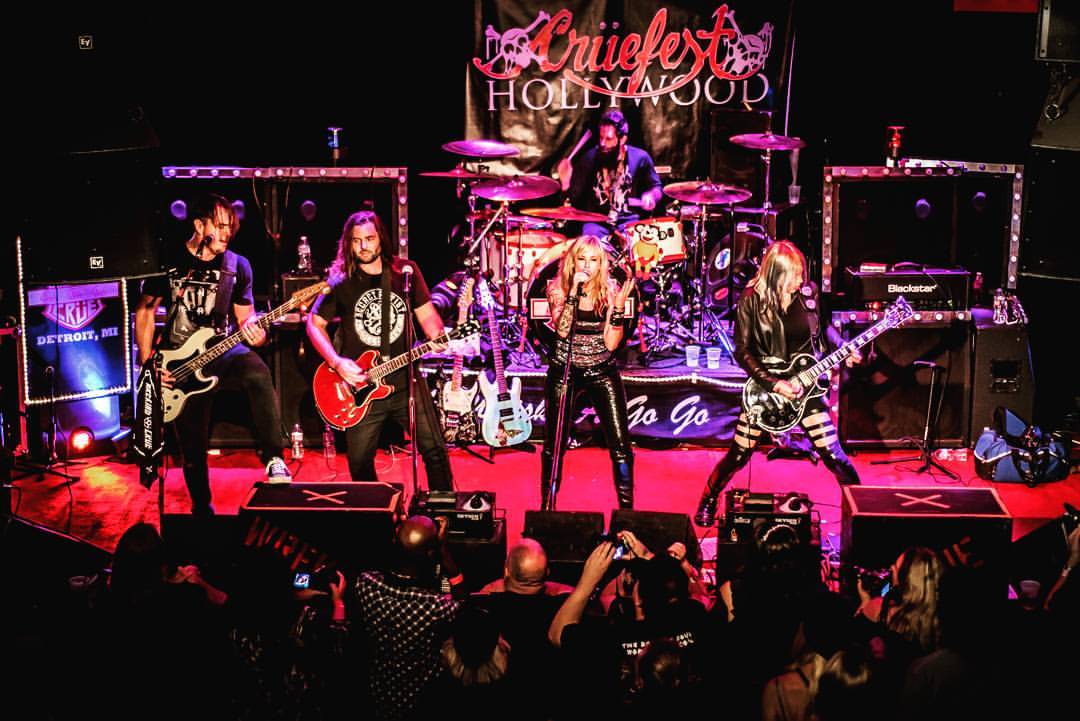
Trotter, third from right, also founded and performed with the band Lunden Reign in both Iowa and California.
Hitting rock bottom made the difference
For years, I resisted joining recovery groups (I was too cool for that) or just “white-knuckled” it. I’d have small successes but would never really stay sober for any length of time.
Shortly after I moved back to Iowa in 2018, I had a black-out event that rattled me to my core. The morning after Thanksgiving, I woke up in a clear jail cell — crying, mumbling, blood on my face and clothes, stitches in my ear, and wearing only jeans and a tank top (way less than what I was wearing the night before).
I had NO recollection of what had happened and was terrified I had hurt someone badly.
Fortunately, I later learned, I had rolled off of a bed, hitting my head on a marble table, hurting only myself. This led to a 911 call to police, and me flailing, then handcuffed, then strapped down and put in an ambulance. It’s an easy and deeply sad scene to imagine.
I became convinced I would soon kill myself or someone else with this incurable disease if they were in my path. I felt like disintegrating into nothing and ceasing to exist, a whole new level of rock-bottom for me.
But an old friend of mine – someone I used to party with ALL the time, who had become sober – came over. He dug me out of my couch and made me brush my hair, put on clean clothes and go eat.When he started telling me he’d been going to meetings, I told him to “get the f*** out” (in my head with a Joe Pesci accent). Then I said, “If you’re going, then I’ll go.”
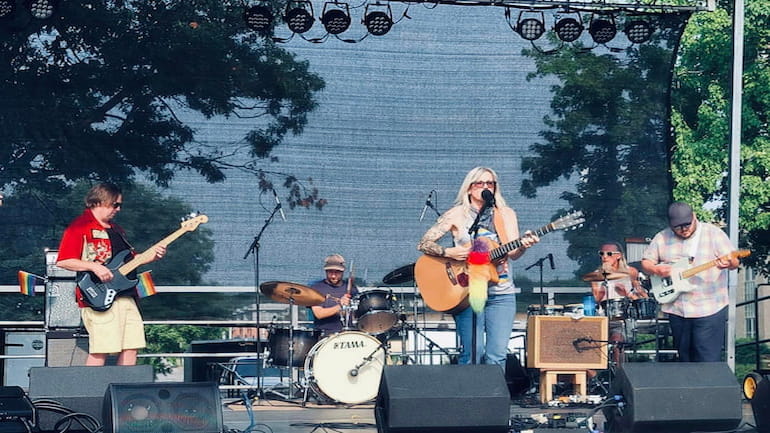
Trotter and Natural Habits Band performed at Iowa City Pride in June 2023.
Finding a recovery community didn’t feel right at first
It was hard at first. Someone made a comment about their lesbian daughter dating men again, and how they were so happy about that. I never went back to that meeting.
Later, I learned this phrase: “You only have to keep your side of the street clean.” Someone else in recovery with a lot of sober time suggested I try a different meeting – and if I didn’t like that one, try another one.
But I wasn’t ready for anything more than a “one and done.” So I kept white-knuckling. Or disintegrating. Whichever was easier at the moment.
When I finally found the right group in 2018, it was a room full of people I would not have met or hung out with otherwise. They were moms, dads, brothers, sisters, daughters, sons and friends – some important people, some not so important.
They all spoke my “ism’s” language. They all felt the way I did, had the same problems as me, carried all the same guilt, shame and resentfulness that was the ever-growing gorilla on my back since 1997.
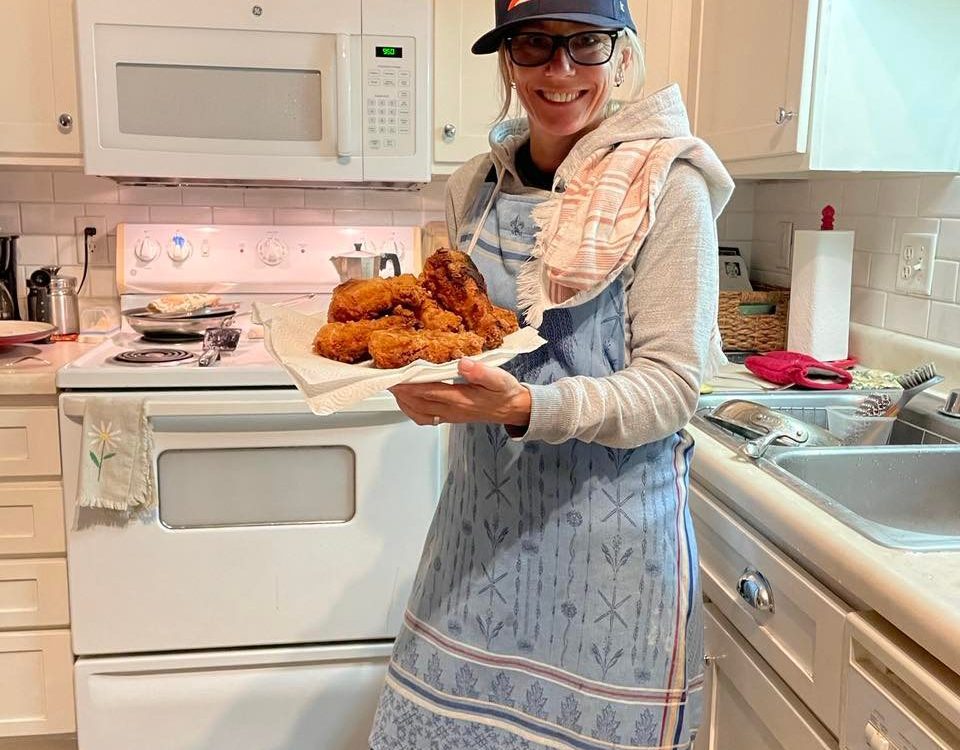
Cooking is one of Trotter’s favorite pastimes, in addition to photography and hiking.
Many people probably have this idea that being a part of a recovery community is a bunch of sad, helpless people sitting around telling sob stories while wallowing in a constant pity party. But it’s quite the opposite!
I mean, weren’t we all the life of the party? Do we stop being fun people when we stop drinking and using? Hell, no. We are far better versions of ourselves. At least I know I am.
Some of us were only “out” for a short time before getting clean and sober. Others are like me and have years of pain and suffering behind them.
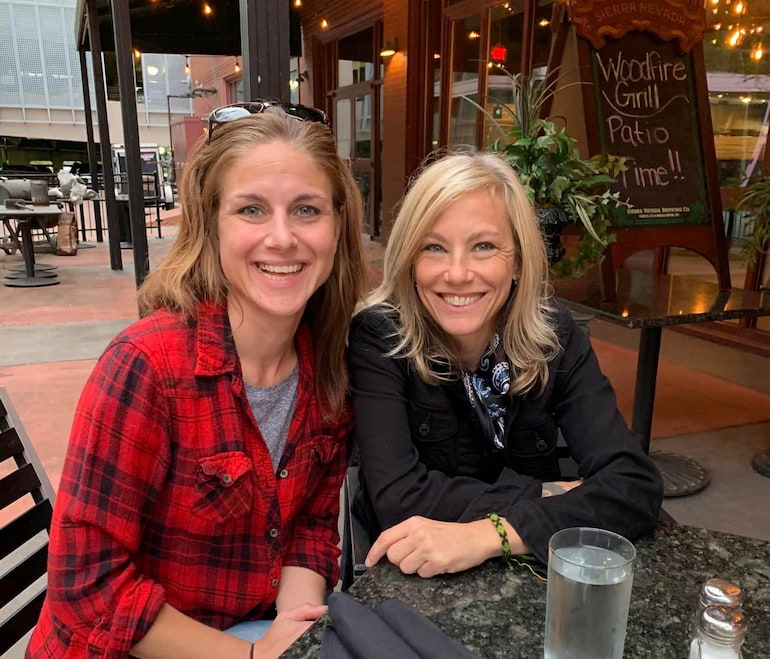
Lunden Trotter, right, smiles with her wife of five years, Ann Trotter.
Recovery has been worth the challenge
I am so grateful to my recovery community. We tell our stories, and we laugh and laugh. We tell someone that we are struggling, and we cry and cry. We answer the phone when another calls, and we listen.
The healing, humor and forgiveness I find in my recovery community continues to save my life and keep me from basking in perpetual self-pity. It’s support that is unmatched among my “normie” friends.
To find them, I had to ignore stigmas and overcome my own reaction to specific things that usually make me cringe. I had to acknowledge that a lot of people in my life were keeping me from getting help.
Look, I’m a worn-out (recovering) stoner drunk / drug abuser / rock-and-roller / singer-songwriter who at some point had kind of a name for myself. I never saw myself in a recovery community until I showed up. If this grungy ‘90s kid can make it, you can make it.
Recovery isn’t always about drugs and alcohol. A lot of ‘isms out there lead you to needing help. Co-dependency, eating disorders, shopping, gambling…. if it’s crippling your life and you can’t get away or stop, there is help for you.
Remember that recovery is about YOUR life, safety and sanity. No one else’s. Google stuff – or whatever it is you kids (and old kids like me) do these days to find information. Because if you need support, the worst thing you can do is NOT ask for it. Don’t be afraid to face your ism(s).
(this column originally appeared in the February 2023 print edition of The Real Mainstream. For more about Trotter, see Nikki Lunden Trotter Photo Gallery. Learn more about Natural Habits Band at its website or Facebook page.)

